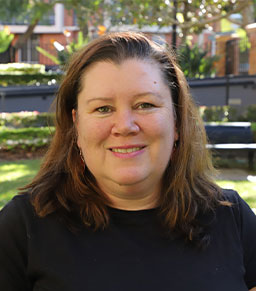Preventing lives lost to suicide must be a collective responsibility

The fight against suicide in New South Wales has reached a pivotal turning point.
With the recent passage of the NSW Suicide Prevention Bill 2025 through Parliament in September 2025, our state isn’t just making progress – it’s setting a groundbreaking national benchmark.
This landmark legislation is profound. By establishing a comprehensive, whole-of-government framework designed to enhance our understanding, prevention, and compassionate response to suicide and suicidal distress, it is embedded as a core, non-negotiable responsibility across all government functions. It means suicide prevention is now deeply integrated into the very fabric of public service.
For far too long, suicide prevention has been viewed as a challenge solely for the mental health system. But, the Australian Institute of Health and Welfare reports that nearly half of people aged 15 to 64 who die by suicide did not engage with a hospital or mental health service in the preceding 12 months, and that almost half of those who die by suicide have not had any contact with the health system in the year prior to their death.
These statistics paint a stark picture: our traditional systems are not reaching everyone in need.
Stigma is one of the worst things individuals contemplating suicide can face. Many people in society have outdated or fear-based attitudes about mental illness and people who consider suicide, and they project these onto the person contemplating ending their life.
As a result, these individuals may fear that sharing their struggles could lead to judgment from their community or professional repercussions. Being labelled as ‘unstable,’ ‘incapable,’ or ‘seeking attention’ could actively deter them from confiding in trusted family, friends, or crucial healthcare professionals. The tragic outcome of this is that many suffer in silence, leading to increased isolation and shame, avoiding the very help that could lower their distress and offer a path to recovery.
People can feel so ashamed that they don’t want others to think they are a problem or that they have failed. This shame is often stronger than their need to get help. We need to change how people think about mental health, so they see getting help as being brave and strong. This change is important because it will help save lives. When people feel safe asking for help, more people will get the support they need.
Funding for stigma reduction initiatives is essential, as are comprehensive public awareness campaigns that challenge misconceptions around mental health challenges. Contact-based public education moves beyond simply providing information; it fosters empathy, challenges stereotypes, and humanises the experience of mental distress by allowing people to hear personal stories and engage in open dialogue with those in mental health distress.
By creating opportunities for genuine engagement, these programs can effectively dismantle the fear, judgment, and shame that prevent people from seeking help, ultimately building more supportive communities where those in crisis feel safe to reach out.
Poor mental health is not always the main reason behind suicide. The factors contributing to suicidal crisis are often varied and deeply rooted in broader life circumstances, including relationship breakdowns, housing and job insecurity, financial hardship, social isolation, and other complex challenges that touch every aspect of life.
The new legislation recognises this intricate web of influences and powerfully says that preventing lives lost to suicide is a collective responsibility.
Every single agency interacting with the NSW Government has a vital role to play. Their staff must be supported and equipped to respond compassionately and effectively to people experiencing distress, understanding that a person in crisis might first encounter a housing officer, a teacher, or a police officer – not a mental health clinician.
This Bill ensures that suicide prevention is no longer an add-on, but an integrated part of how government operates, fostering shared responsibility and coordinated action across the entire public sector.
NSW is not just talking about change – we are legislating it, building a more compassionate, responsive, and ultimately, a safer state for all.
By Sharon Grocott, CEO, Wayahead
If you or someone you know is in need of support, please contact:
Lifeline on 13 11 14, 24 hours a day, 7 days a week.
Newsletter
Stay up to date
Sign up to our Mind Reader newsletter for monthly mental health news, information and updates.